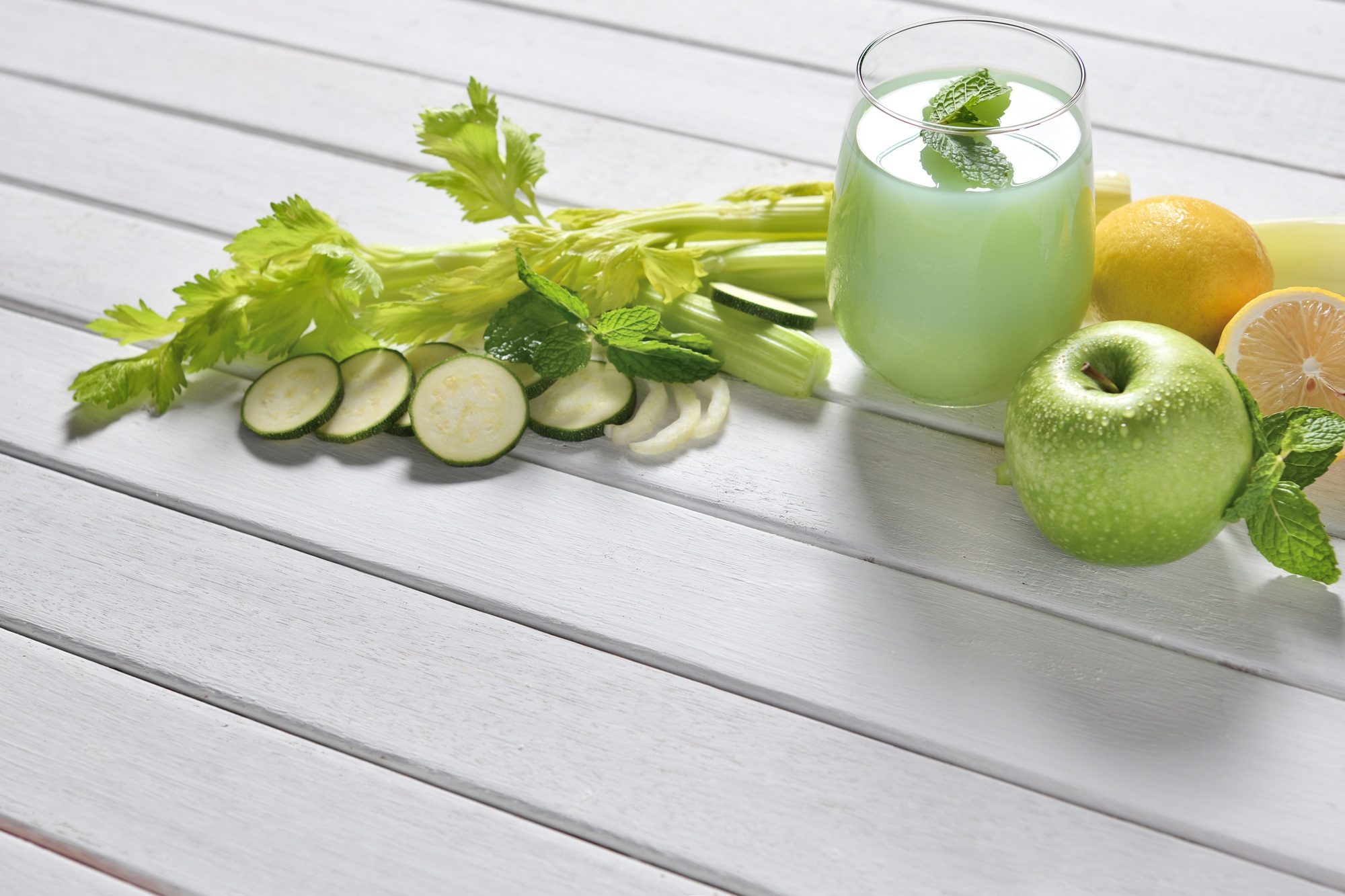Key Takeaways

- Understanding Market Trends: The fruit juice industry is thriving, with health-conscious consumers driving demand for organic and cold-pressed options. By tapping into these trends, you can position your business effectively.
- Target Audience Identification: Focus on health-conscious individuals, millennials, and families. Conduct thorough research to grasp consumer preferences and tailor your offerings accordingly.
- Business Planning: A solid business plan is vital. Outline your product offerings, market analyses, and clear goals to guide your startup and navigate challenges.
- Legal Compliance: Ensure you understand and meet all legal requirements, including business registration and health permits, to operate smoothly and build customer trust.
- Quality Ingredients and Equipment: Source fresh, high-quality ingredients from reliable suppliers, and invest in essential juicing equipment to maintain product quality and operational efficiency.
- Effective Marketing Strategies: Build a strong brand identity and utilize social media and local partnerships for promotion. Engaging marketing tactics will help establish a loyal customer base and increase visibility.
If you’ve ever dreamed of turning your passion for fresh flavors into a thriving business, starting a fruit juice venture might be your perfect opportunity. With health-conscious consumers on the rise, the demand for delicious and nutritious beverages is booming. You can tap into this growing market by crafting unique blends that tantalize taste buds and promote wellness.
Embarking on this journey requires more than just a love for fruit. You’ll need a solid plan, the right equipment, and a keen understanding of your target audience. Whether you’re considering a small stand at a local market or a full-scale juice bar, knowing the essentials will set you on the path to success. Let’s explore the steps to kickstart your fruit juice business and turn your vision into reality.
Understanding the Fruit Juice Market

Understanding the fruit juice market is crucial for your small business startup. You’ll find significant trends and opportunities that can shape your business strategies and target audience approaches.
Market Trends and Opportunities
Numerous trends impact the fruit juice industry. Increased health consciousness among consumers drives demand for natural and organic juice options. According to industry reports, the global fruit juice market is projected to reach $185 billion by 2025. Innovations in packaging, such as eco-friendly materials, attract environmentally conscious customers. Additionally, the rise of cold-pressed juices offers a high-nutrient alternative, appealing to health-focused consumers. Focus on these trends to identify gaps in the market and position your startup effectively.
Target Audience Analysis
Identifying your target audience is critical for your fruit juice business. Primary consumers include health-conscious individuals, fitness enthusiasts, and families seeking nutritious options. Research shows that millennials and Generation Z prioritize health and wellness, often opting for organic and fresh products. Conduct surveys or analyze local consumer behavior to further refine your target demographics. Understanding preferences, such as flavor profiles or dietary restrictions, allows your startup to tailor its offerings effectively.
Business Planning Essentials

Starting a fruit juice business requires careful planning. Essential components include thorough market research, a well-structured business plan, and clear goals and objectives.
Creating a Business Plan
Craft a business plan that outlines your startup’s vision. Your plan should detail the type of juice products you will offer, such as cold-pressed juices or smoothies. Identify your target market, which could encompass health-conscious consumers or busy professionals. Include market analysis to inform pricing strategies and competitive positioning. A strong business plan serves as a roadmap for your small business, guiding you through challenges and opportunities.
Setting Goals and Objectives
Establish measurable goals and objectives for your fruit juice business. Consider short-term targets such as reaching specific sales figures within the first year or expanding your product line after six months. Long-term objectives may involve increasing market share or launching an online sales platform. Clearly defined goals help you monitor progress and adjust strategies, ensuring your startup remains focused and competitive in the growing fruit juice market.
Legal Requirements and Regulations

Starting a fruit juice business involves understanding various legal requirements and regulations to ensure compliance and smooth operations. Meeting these requirements protects your startup and builds credibility with customers.
Business Structure and Registration
Choose a suitable business structure, such as a sole proprietorship, partnership, or LLC. Each has different implications for liability and taxes. Register your business name in your state, and file the necessary paperwork. In Florida, for instance, you must obtain an “Annual Food Permit” from the Florida Department of Agriculture and Consumer Services. In Texas, register with the State Department of Health Services to comply with local zoning rules. Don’t forget to acquire a Business Tax Receipt specific to your county.
Health and Safety Compliance
Adhering to health and safety regulations is crucial for your fruit juice business. Obtain relevant permits, such as a food service license and a health permit, which vary by location. These permits ensure that your operating facility meets sanitary conditions and food safety standards. Inspections typically occur to guarantee compliance. Preparing for these inspections starts with maintaining cleanliness and using proper food handling techniques to safeguard your products and consumers.
Sourcing Ingredients and Equipment

Sourcing high-quality ingredients and essential equipment is crucial for your fruit juice business. The quality of your juices directly impacts customer satisfaction and your brand’s reputation.
Finding Quality Suppliers
Finding reliable suppliers is vital for maintaining product quality in your startup. Research local farmers or established agricultural enterprises that can consistently provide fresh fruits and vegetables. Ensure your suppliers practice sustainable farming techniques to align with consumer preferences for organic products. Assess their ability to meet seasonal demand by evaluating harvest schedules and product availability. Building strong relationships with local farmers can enhance access to organic and seasonal produce, adding unique flavor profiles to your juices.
Essential Equipment for Juice Production
Equipping your juice business with the right tools enables efficient production. Essential equipment includes:
- Juicers: High-capacity juicers handle large volumes efficiently, producing consistent quality.
- Blenders: Commercial-grade blenders ensure smooth textures for blended juice options.
- Pasteurizers: Heat treatment devices extend shelf life and ensure safety.
- Bottling Equipment: Automated bottlers streamline the packaging process, maintaining labeling standards.
- Storage Tanks: Stainless steel tanks preserve freshness and provide bulk storage for raw ingredients.
Investing in quality equipment minimizes downtime and enhances production efficiency, positioning your small business for success in the competitive fruit juice market.
Marketing Your Fruit Juice Business

Effective marketing strategies elevate your fruit juice business. Focus on building a strong brand and utilizing targeted promotional techniques to reach your audience.
Branding Strategies
Create a unique brand identity that reflects your values and resonates with your target market. Develop a memorable name and logo that convey freshness and health. Utilize consistent branding across all platforms, including packaging, signage, and social media, to enhance recognition. Consider incorporating storytelling into your branding, showcasing the origins of your ingredients and the health benefits of your juices. This connection appeals to health-conscious consumers and builds loyalty.
Effective Promotion Techniques
Implement various promotional techniques to reach potential customers effectively. Use social media platforms like Instagram and Facebook to share engaging content, including eye-catching images of your juice products and customer testimonials. Host tasting events or workshops to showcase your juices and connect with the community. Consider partnering with local gyms, organic markets, and wellness events to expand your reach. Utilize email marketing to inform subscribers about new products, promotions, and upcoming events. Engaging content and promotions create buzz around your startup, helping you establish a strong market presence.
Financial Management

Effective financial management is essential for a successful fruit juice business startup. This involves establishing budgeting practices, pricing strategies, and exploring funding options to support your venture.
Budgeting and Pricing Strategies
Creating a detailed budget ensures you allocate funds efficiently, covering all expenses such as ingredients, equipment, and overhead costs. Start by estimating initial startup costs, including equipment purchases and renovation expenses. Consider ongoing costs like raw materials, wages, and utilities.
Establish competitive pricing strategies to attract customers while maintaining profitability. Research competitor prices and assess your unique selling propositions. For example, if you offer organic juices, highlight their benefits justifying a higher price point. Implementing value-based pricing allows you to charge based on the perceived value of your products rather than just cost-plus pricing.
Funding Options for Your Business
Securing funding is critical for launching your fruit juice business. Various options exist to support your startup. Consider personal savings as a primary source. Additionally, explore small business loans from banks or credit unions. Government-backed loans like those through the Small Business Administration (SBA) offer favorable terms.
Investors can provide capital in exchange for equity, allowing you to expand without immediate repayment pressures. Crowdfunding platforms also present opportunities to raise capital while building an engaged customer base. Evaluate all funding options to determine which aligns with your business model and long-term goals.
Conclusion

Starting a fruit juice business can be an exciting and rewarding journey. By focusing on quality ingredients and effective marketing strategies you can carve out a niche in this growing market. Remember to prioritize thorough research and planning to ensure your business stands out from the competition.
Building strong relationships with suppliers and maintaining high standards of hygiene will set the foundation for success. As you navigate the challenges of entrepreneurship stay adaptable and open to feedback from your customers. With dedication and a clear vision you can turn your passion for healthy beverages into a thriving business. Embrace the journey and enjoy the fruits of your labor.
Frequently Asked Questions

What are the key steps to starting a fruit juice business?
To start a fruit juice business, develop a solid business plan, conduct thorough market research, identify your target audience, choose a suitable business structure, and secure necessary permits. Additionally, invest in quality equipment, source high-quality ingredients, and establish effective marketing strategies to promote your brand.
What is the importance of a business plan in a fruit juice startup?
A business plan outlines your goals, identifies your target market, and details your product offerings. It serves as a roadmap to guide your business decisions, helps secure funding, and allows you to analyze market trends and competitive positioning, ensuring you stay focused on growth and profitability.
How can I identify my target audience for a fruit juice business?
To identify your target audience, conduct surveys, analyze local consumer behavior, and consider the demographics of health-conscious individuals, fitness enthusiasts, and families. Understanding their preferences will help you tailor your product offerings effectively and market them in a compelling way.
What legal requirements should I consider for starting a juice business?
You’ll need to choose a business structure (like LLC or sole proprietorship), register your business name, and comply with local regulations by obtaining necessary food permits. Ensuring health and safety compliance is essential to meet sanitary standards and protect your consumers and products.
What equipment do I need to start a fruit juice business?
Essential equipment includes high-capacity juicers, commercial blenders, pasteurizers, bottling equipment, and storage tanks. Investing in quality equipment minimizes downtime, enhances production efficiency, and positions your business for success in a competitive market.
How can I effectively market my fruit juice brand?
Create a unique brand identity with a memorable name and logo, and maintain consistent branding across all platforms. Use storytelling to connect with consumers, engage them through social media content, host tasting events, and collaborate with local businesses to expand your reach.
What are some financing options for a fruit juice business?
Consider personal savings, small business loans, and crowdfunding as potential financing options. Creating a detailed budget that outlines all expenses will help you evaluate these funding avenues and maintain profitability, setting your business up for long-term success.
Image Via Envato



